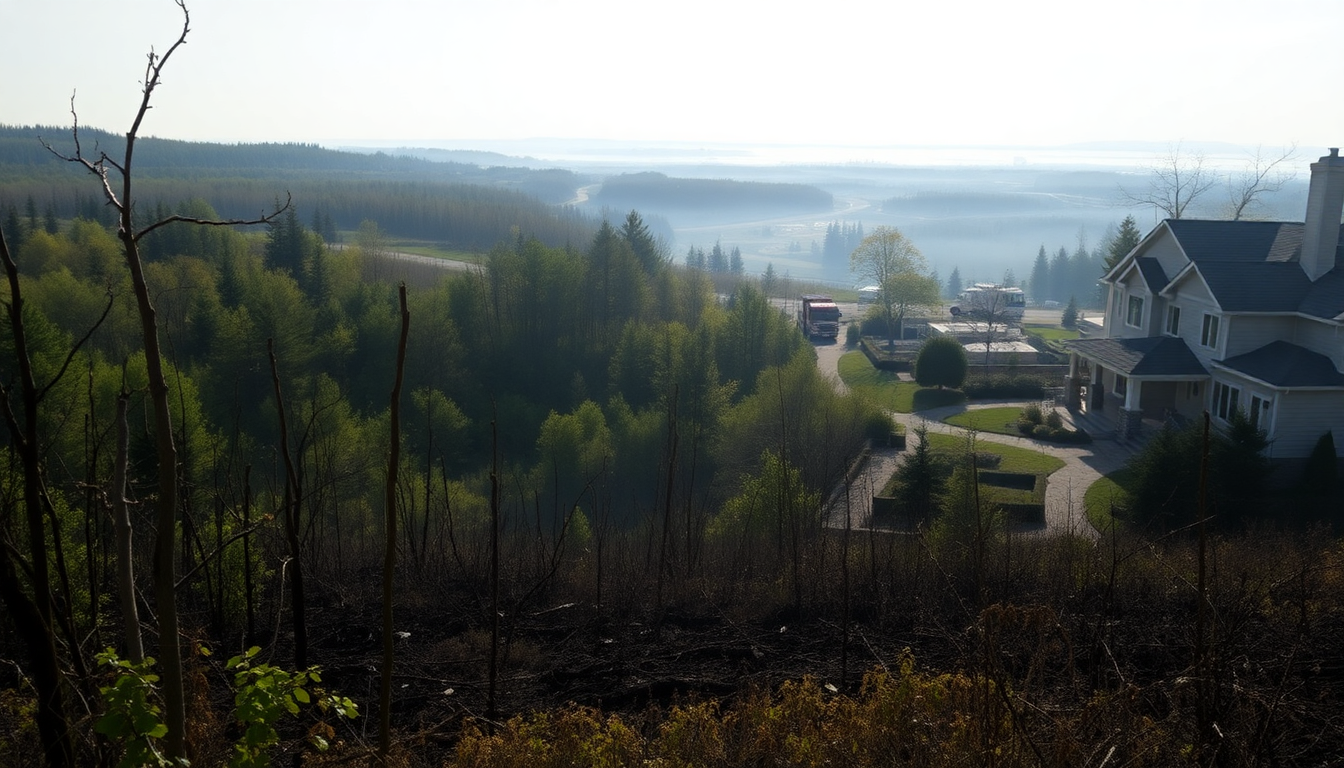Table of Contents
The recent wildfires in Nova Scotia’s Annapolis Valley have sparked serious concerns among local residents and investors. With the Long Lake wildfire continuing to spread, it’s crucial to consider how these natural disasters impact property values and the real estate market. So, what do homeowners and potential investors need to know to make informed decisions in the luxury real estate sector?
Current Wildfire Situation and Its Implications
The Department of Emergency Management in Nova Scotia has issued evacuation orders for residents along Highway 10 due to the relentless Long Lake wildfire. This situation is made even more alarming by the fact that the wildfire has already consumed about 32 square kilometers, triggering air quality warnings in Annapolis County. Events like this remind us just how unpredictable wildfires can be and their potential ramifications for local communities.
For property owners, the immediate worry is safety and protecting their investments. However, the long-term implications could affect property values and market dynamics significantly. If the wildfire continues to spread or more evacuation orders follow, the residential market in these areas might see a dip in demand. After all, homebuyers often prioritize safety and environmental stability when considering investments, and a region under threat from wildfires is likely to deter potential buyers.
The Relationship Between Natural Disasters and Real Estate Investment
In the world of luxury real estate, we all know that **location is everything**. Natural disasters like wildfires can dramatically shift perceptions of an area, leading to fluctuations in property values. Investors need to stay alert and consider how current events might reshape their strategies.
Historically, regions affected by natural disasters often experience a temporary drop in property values, followed by a recovery phase. This cycle can present unique opportunities for savvy investors willing to act when others hesitate. Understanding the intricacies of this cycle is essential for capitalizing on potential investment opportunities that arise in the aftermath of such disasters.
Practical Advice for Investors During Wildfire Events
If you’re an investor trying to navigate the tricky waters of the real estate market during wildfire events, here are some strategies to consider. First and foremost, staying informed about local conditions is vital. Regular updates on the status of wildfires and their impact on air quality can provide crucial insights.
It may also be wise to assess properties in areas that are less prone to wildfires. Locations further away from known fire-prone regions could offer more stability and investment potential. Plus, understanding the long-term recovery patterns of affected areas can guide your decisions, as some regions may bounce back more robustly than others.
Looking Ahead: Predictions for the Real Estate Market
As we reflect on the current situation with the Long Lake wildfire and its implications, it’s important to think about the projected recovery of the real estate market in Nova Scotia. Historical trends indicate that while the immediate impacts may be negative, areas that adopt strong fire prevention and mitigation strategies often recover more quickly.
In conclusion, while the ongoing wildfire crisis poses challenges for residents and investors in Nova Scotia, it also opens up discussions about the resilience of the real estate market. By understanding how natural disasters influence property values and staying informed, investors can make strategic decisions that align with their long-term goals in the luxury real estate sector. So, are you ready to navigate these challenges and seize potential opportunities?


